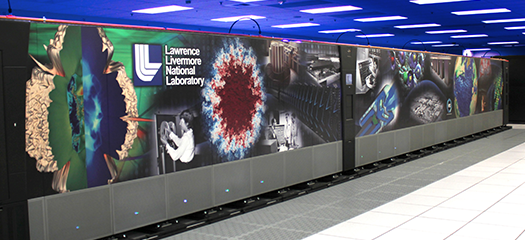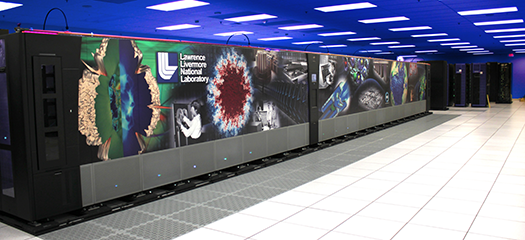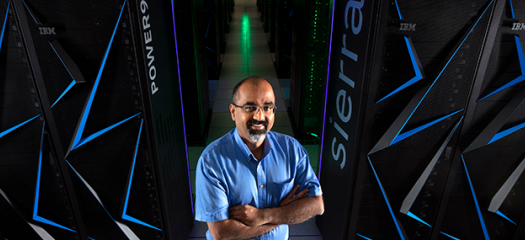Browse this site's news, projects, and people highlights via any of the topics in the dropdown list or below each content description.

Exascale Archiving
LLNL is home to the world’s largest Spectra TFinityTM system, which offers the speed, agility, and capacity required to take LLNL into the exascale era.

Flux
This 2021 R&D 100 award-winning software solves data center bottlenecks by enabling resource types, schedulers, and framework services to be deployed as data centers evolve.

HPSS
Livermore’s archive leverages a hierarchical storage management application that runs on a cluster architecture that is user-friendly, extremely scalable, and lightning fast.

Vanessa Sochat
Computer scientist Vanessa Sochat isn’t afraid to meet new experiences head on. With a Stanford PhD and a jump-right-in attitude, she joined LLNL to work on the BUILD project, Spack package…

Stephanie Brink
Computing relies on engineers like Stephanie Brink to keep the legacy codes running smoothly. “You’re only as fast as your slowest processor or your slowest function,” says Brink, who works in…

Ramesh Pankajakshan
Computational Scientist Ramesh Pankajakshan came to LLNL in 2016 directly from the University of Tennessee at Chattanooga. But unlike most recent hires from universities, he switched from research…

Distinguished paper offers unique solution for GPU offloading
Research recognized at the HiPC IEEE conference proposes using an optimized version of OpenMP for vendor-agnostic GPU performance, portability, and scalability.

Mapping cosmic shear to illuminate dark energy
In a recent study published in the Astrophysical Journal, LLNL researchers developed an innovative approach to map cosmic shear using linear algebra, statistics, and HPC.

Lori Diachin on HPCwire's 2025 People to Watch list
People to Watch are at the forefront of HPC trends, adapting new technology to the rapidly changing world in order to unlock the answers to the biggest societal challenges of our time and make the impossible, possible.
